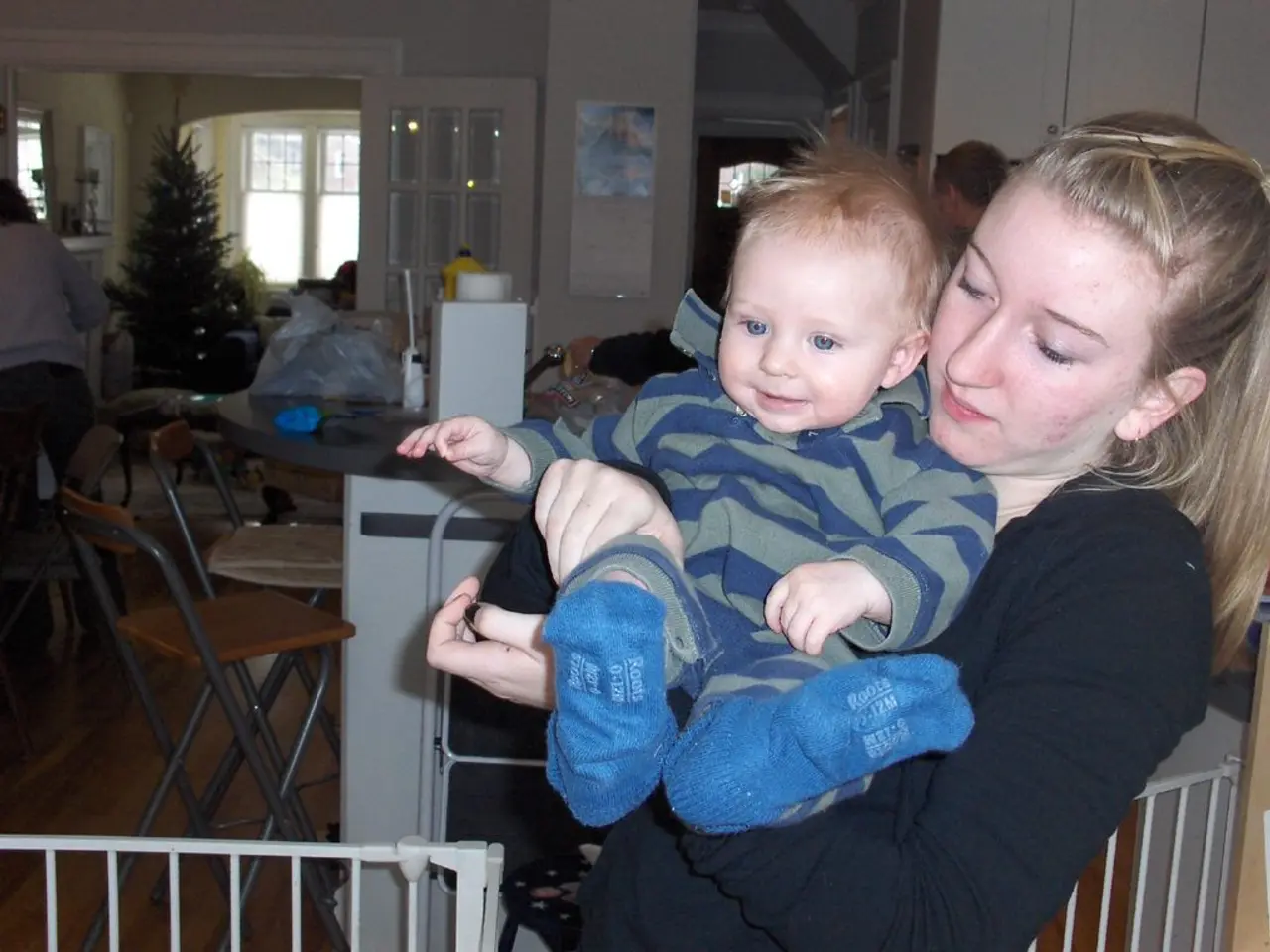Insights on Caregiving and the Shift in Roles
=====================================================================
A new study sheds light on a complex family dynamic known as parent-child role reversal, or parentification, which can significantly impact families when children take on caregiving roles for their elderly parents. This dynamic, often seen in families with an elderly person suffering from conditions like Dementia, can blur normal boundaries and increase stress on the adult child.
The study, which focuses on role reversal between parents and children, found that as the child gets older, the problem may become more pronounced. In some cases, both parents may suffer from mental health issues, and the adult child may find themselves voluntarily taking on the role of a caregiver or being forced into it through manipulation or guilt-tripping.
When children become caregivers for their elderly parents, they often assume a hyper-responsible and people-pleasing stance. They may feel guilty for attending to their own needs and struggle to say no to caregiving demands, leading to chronic stress, difficulty setting boundaries, and self-neglect. This dynamic can foster strong caregiving skills but also contributes to emotional exhaustion, resentment, and potential conflict within the family.
The altered dynamic may disrupt normal family roles and emotional boundaries, with the child’s needs often overshadowed by those of the parent. The caregiving adult child may carry past parentification experiences into eldercare, making them more prone to over-function and less capable of setting healthy limits, increasing the risk of emotional exhaustion and strained relationships in the family.
In some cases, prolonged boundary violations and emotional enmeshment associated with parentification can lead adult children to disengage or go “no contact” to protect their mental health when caregiving demands become harmful or overwhelming.
The study emphasizes the importance of empathy in caregiving situations to avoid browbeating, bossing around, or giving orders. It also highlights that role reversal can occur as early as infancy, with the child attempting to take care of parents instead of the other way around.
While the study does not discuss the impact of role reversal on the child's development in detail, it does note that the natural development of the adult child may be hindered as they spend most of their time caring for their loved one, which can lead to discontent.
The study does not specify the age range of the parents or children involved, nor does it mention any specific medical conditions or mental health issues in the families observed. However, it is important to note that parentification is also seen in families with a mentally ill elderly parent.
In conclusion, parentification in the context of elder caregiving reshapes family roles by reversing traditional parent-child boundaries, which often exacerbates stress, impacts mental well-being, and complicates family interactions around caregiving duties. It is crucial for families to approach these situations with empathy and understanding to maintain healthy relationships and prevent burnout.
- In families dealing with dementia, the complex family dynamic of parent-child role reversal, or parentification, can become more pronounced as the child grows older, leading to mental health challenges for both parties.
- As a result of taking on caregiving roles, adult children may struggle to prioritize their own needs, causing chronic stress, difficulty setting boundaries, and self-neglect, which can contribute to emotional exhaustion and resentment in relationships.
- Health-and-wellness professionals should be aware that parentification can also occur in families with a mentally ill elderly parent, potentially affecting the child's development, emotional well-being, and family dynamics.
- To maintain a healthy lifestyle and avoid burnout, it's essential for families facing parentification in elder care settings to cultivate empathy in their interactions and recognize the importance of respecting boundaries and prioritizing self-care when undertaking caregiving responsibilities.




